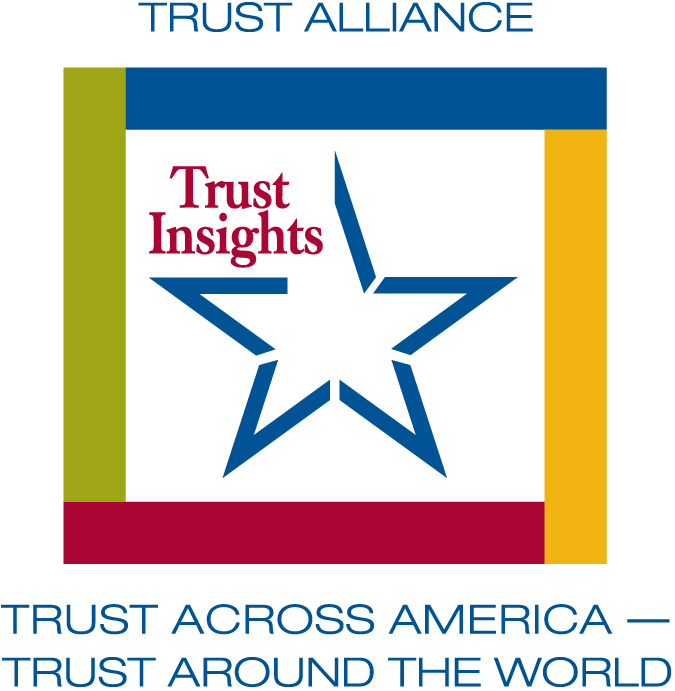 With the right mindset (and tools) leaders can build trust in a new work environment.
With the right mindset (and tools) leaders can build trust in a new work environment.
Barbara Brooks Kimmel
Over the past few months, members of our Trust Alliance have participated in a series of Lunch & Learns. Our global membership crosses every organizational silo and we rarely view organizational trust through the same lens. Sharing our cultural perspectives and trust expertise has elevated our understanding of the nuances of this increasingly relevant and timely topic.
Working from home is just one of many “new” realities facing business leaders during this pandemic. These realities have exposed the lack of leadership acknowledgement of the role trust plays in organizational success. Now more than ever leaders MUST develop intentional trust-building strategies that are internally driven.
So once again, we reached out to our Alliance members, asking for their perspective on the trust challenges leaders should be addressing right now, and any examples of those who are stepping up to meet them.
Leaders Must Extend Trust to their Employees
According to David Belden, one of the most transformational aspects of the pandemic is the transition of the workforce to remote functioning. In working with over 400 companies for the past 22 years, the major hindrance in this transformation has been a lack of trust from leadership towards employees. Companies have traditionally felt that if they could not directly monitor their workforce, the work would not get done.
The current crisis has forced a change in that view. The results have been nothing less than astounding. In recent surveys, over 70% reported that, given the choice, they would continue to work remotely. Concurrently, companies are reporting an unexpected increase in productivity.
There are two critical aspects for a successful transition to remote work:
- Absolute clarity regarding the expected outcome. The focus has to be on outcome/results rather than hours worked.
- Line of sight on the part of the employee between the goal of the company and his or her personal contribution in attaining that goal.
When these two prerequisites are met, the company has to trust that the employee will fulfill their agreed upon duties. The employee must trust that the company will act in the best interests of all of the stakeholders, particularly the employees. Without mutual trust, this new arrangement will not succeed.
Trustworthiness is a 2-way street with the leader and the team adds Kevin McCarthy. COVID19 is a tough shift in every aspect of our lives and lifestyles. Such times reveal us–particularly our varying personal health conditions, risk profiles and preferences. Leaders who acknowledge and respect these differences may honor them by providing team members, where practical, a transitional period to continue to work from home or return to the workplace as each person sees fit. Likewise, willing, but financially disincentivized, team members drawing unemployment compensation greater than or equal to their pay can do their civic duty by returning to the workforce for the common good of their co-workers, company, and country.
Elevating Trust Requires Acknowledging Uncertainty
Bart Alexander reminds leaders that crises often result in debilitating uncertainty. By saying “It’s too early, we just don’t know,” organizations reinforce collective and individual stress, even panic. Companies can translate uncertainty into manageable risk by openly sharing their best judgement, as in, “This is the worst case, this is the best case, and this is the most likely case, and if anything changes, you’ll be the first to know.” Adding the probability of each scenario will help all to be on the same page and begin to prepare. Open solicitation of ideas on how to best adapt further engages the entire organization into a shared future.
And Lea Brovedani supports these sentiments and provides an example. Leaders should be acknowledging uncertainty and showing their own humanity. They should tell what they know, what they don’t know and still take action. At this time, they need to model the duality of feeling uncertain and showing how to keep moving forward.
The first business leader that comes to mind is Satya Nadella, Microsoft’s chief executive who instructed people to work from home well before most other companies. He acknowledged feeling uncertain and worried, talking about his son who has cerebral palsy and the worries he and his wife have.
Here is a quote from an article written in the Seattle Times:
Nadella gave the interview shortly before releasing a lengthy email to his more than 140,000 employees worldwide, applauding them for their response to the pandemic and urging them to do the best they can to help others on a personal and professional level...
Nadella said in his email that Microsoft is in a position to help slow the pandemic by demonstrating leadership in the face of adversity and maximizing the company’s biggest strength — bringing people, ideas and solutions together quickly through tech. He mentioned the company’s work to bring “trusted news and facts” about COVID-19 to LinkedIn members and on Bing, while working with Facebook, Google and Twitter to bring “authoritative content” to those platforms and “combat fraud and misinformation about the virus.
Trust Will be Predicated on Employee Engagement
Ben Boyd recently wrote an article called “The COVID case for stakeholder capitalism – and the elevated role of corporate communications.” He had this to say about employees and the future of engagement. Employees have shown incredible resiliency, enduring extraordinary and ongoing change. Their continued engagement and commitment are critical to meeting the future needs and demands of the business; however, their expectations have changed over these past four months. Developing programs to engage, motivate, reassure and rebuild an organization’s workforce must be a top priority. Key questions to consider are: How will you address employees’ most basic needs related to personal safety and company hygiene? Moving toward the “next normal,” how will you assess employees’ evolving needs and expectations to ensure your leaders are authentically and empathetically connecting with the workforce?
And finally my thoughts. Business leaders have many tough decisions ahead of them. Hopefully they also have the skill set to engage their employees to help make them. Our current climate of fear has revealed just how much leaders in all societal institutions have taken trust for granted. In business, not only do employees fear for their physical and emotional safety, but also for the future of their jobs. In other words, they don’t trust their employers to keep them safe. Perhaps it’s the emotional element of trust (some call it benevolence) that are even more critical now in allaying those fears. Hard skills like leadership competence are no longer sufficient. In fact, they haven’t ever been. Emotional intelligence, an ethical mindset and empathy are the “soft” skills that build trust. Who returns to work and how to manage social distancing are the easy problems, and the ones that most C-Suite advisors will tackle first. They will also be the ones that are promoted in stakeholder communications. And if the emotional elements that have created the “fear” are not given equal weight, then we will simply return to the pre pandemic levels of low employee engagement and increasingly challenging mental health issues, while sitting six feet apart. Those “hard” decisions are the ones that will continue to separate authentic trustworthy leaders from all others. For the rest, it will be business as “usual” with a few minor and inconvenient adjustments that are the easiest to communicate.
Before you leave, Tap Into Trust and complete our 1 minute/1 question quiz. Find out how the level of trust in your workplace compares to hundreds of others.
Have you reviewed how our workshops are helping teams and organizations just like yours elevate trust? Schedule an ONLINE webinar today.
Did you miss our previous 2020 Trust Insights? Access them at this link.
Contact us for more information on elevating trust on your team or in your organization or email me directly:
Copyright 2020, Next Decade, Inc.
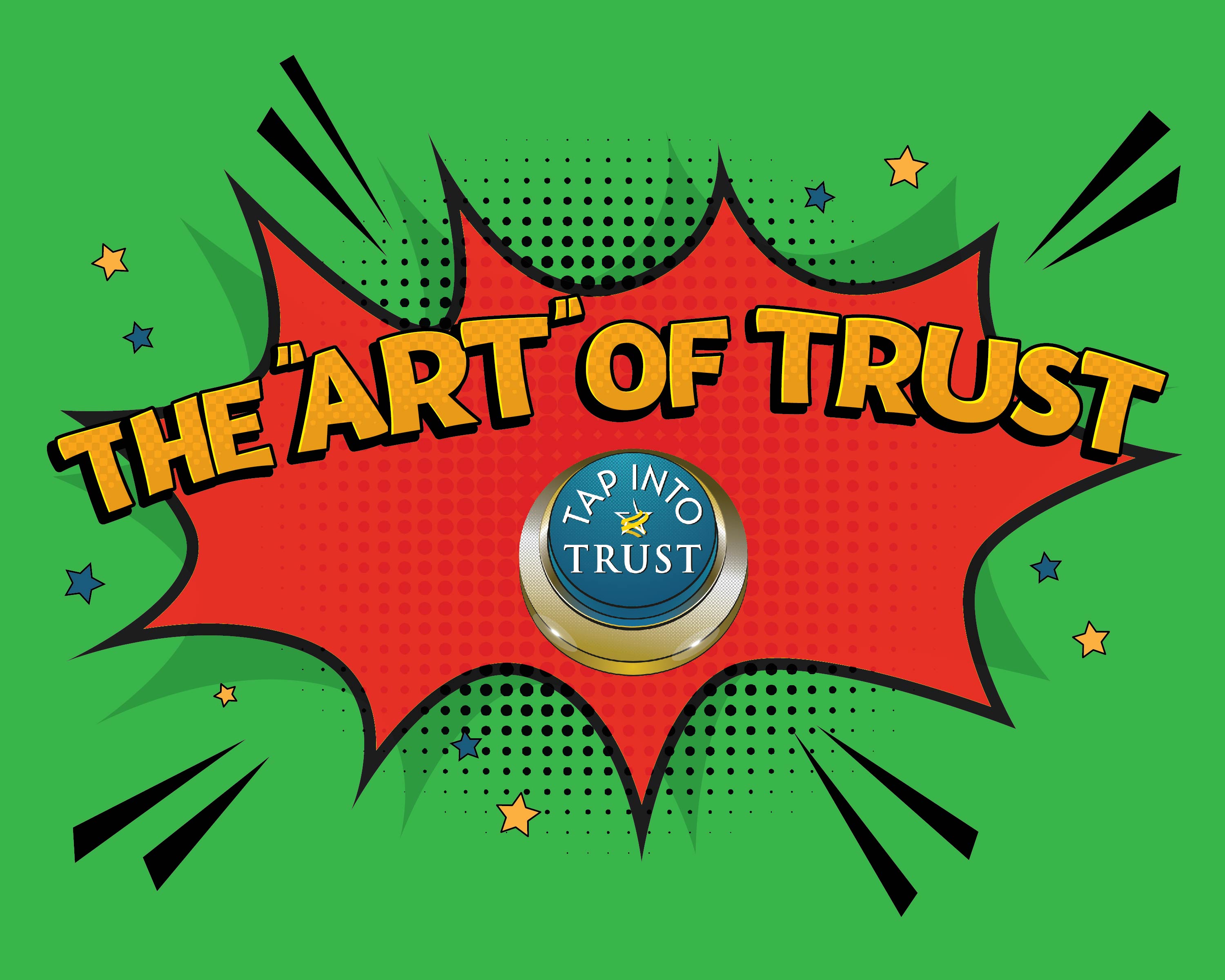
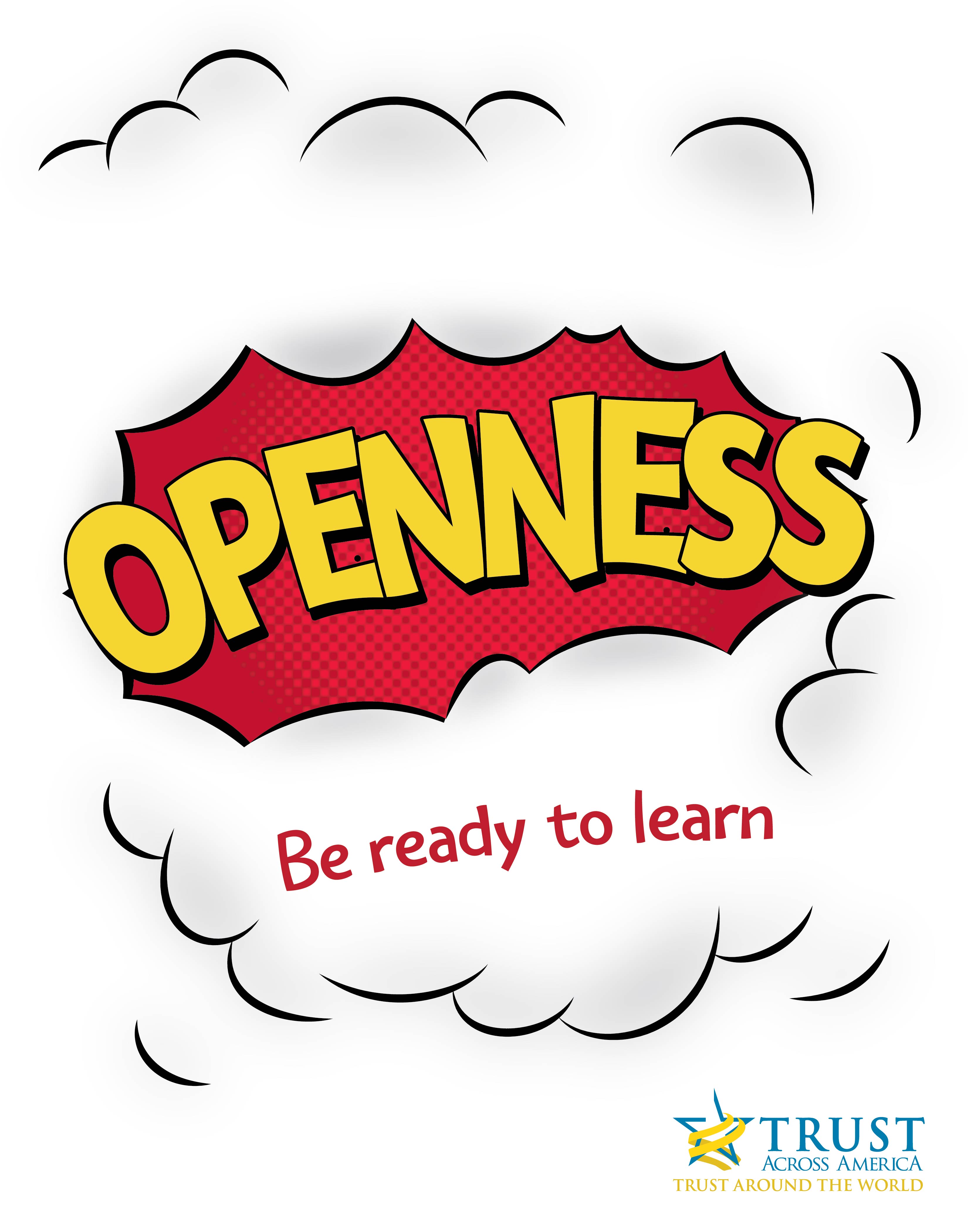
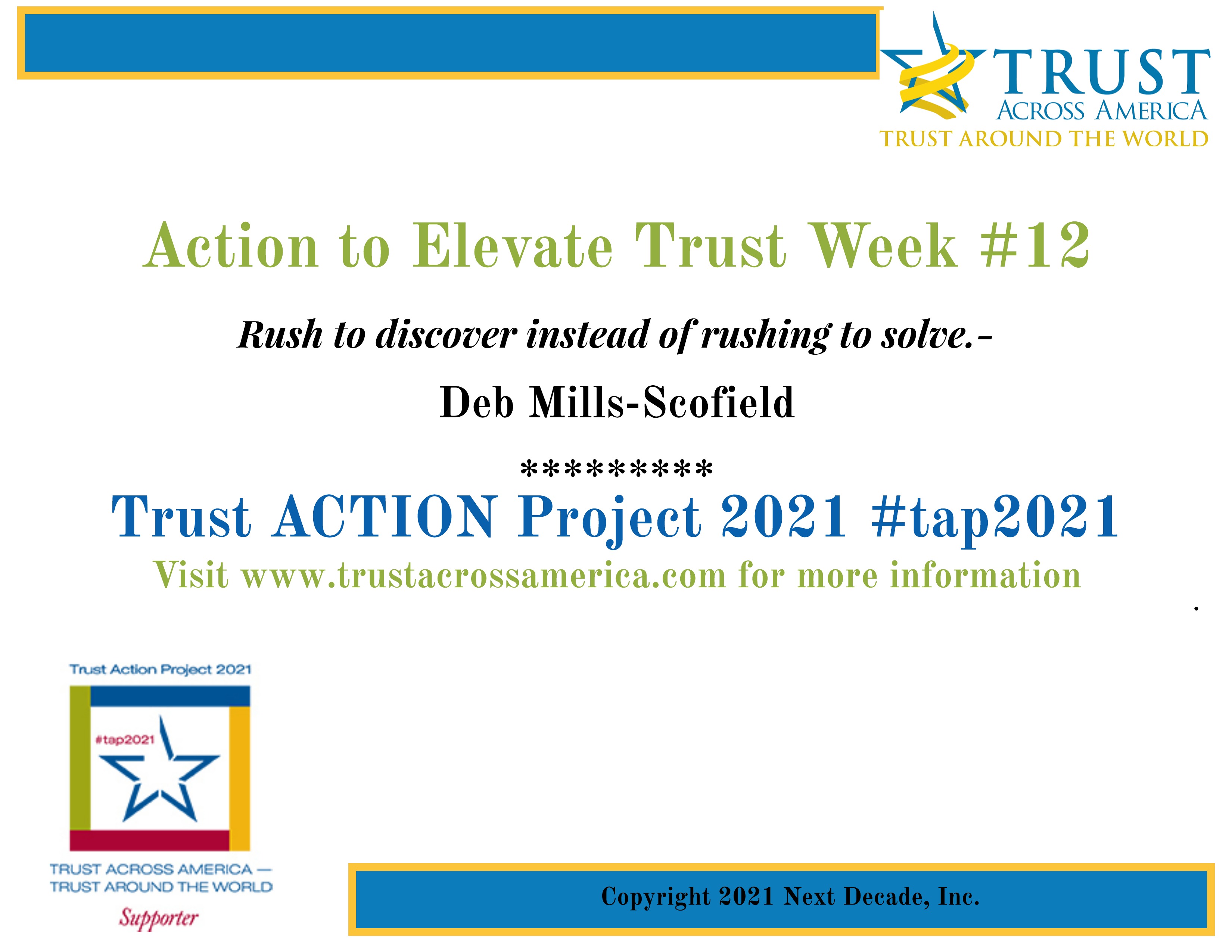

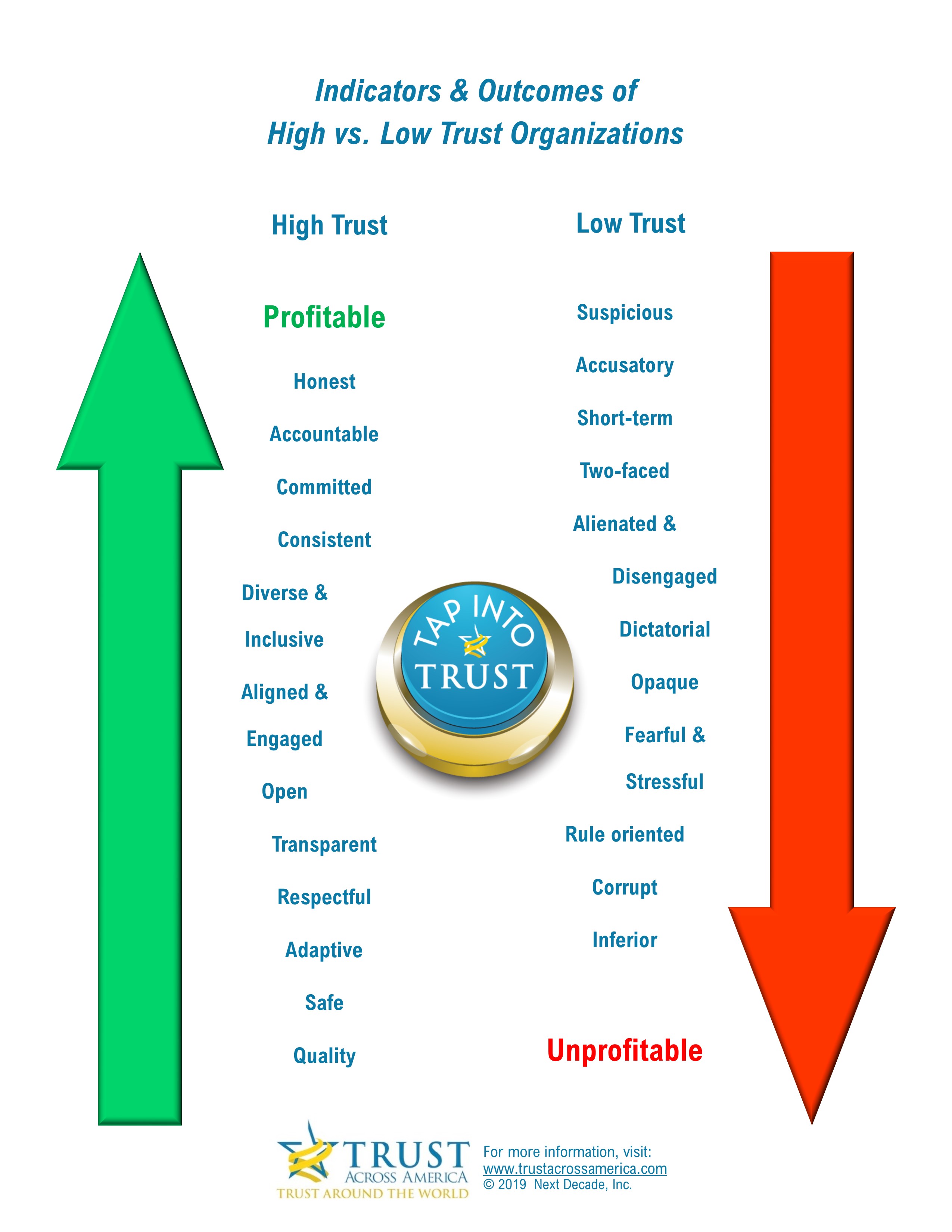
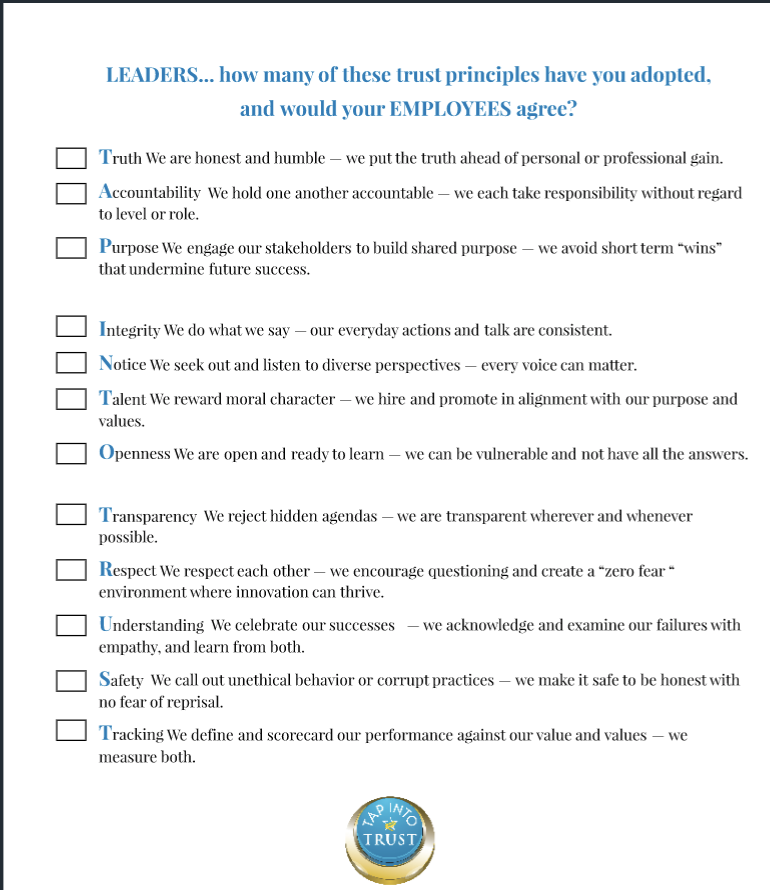
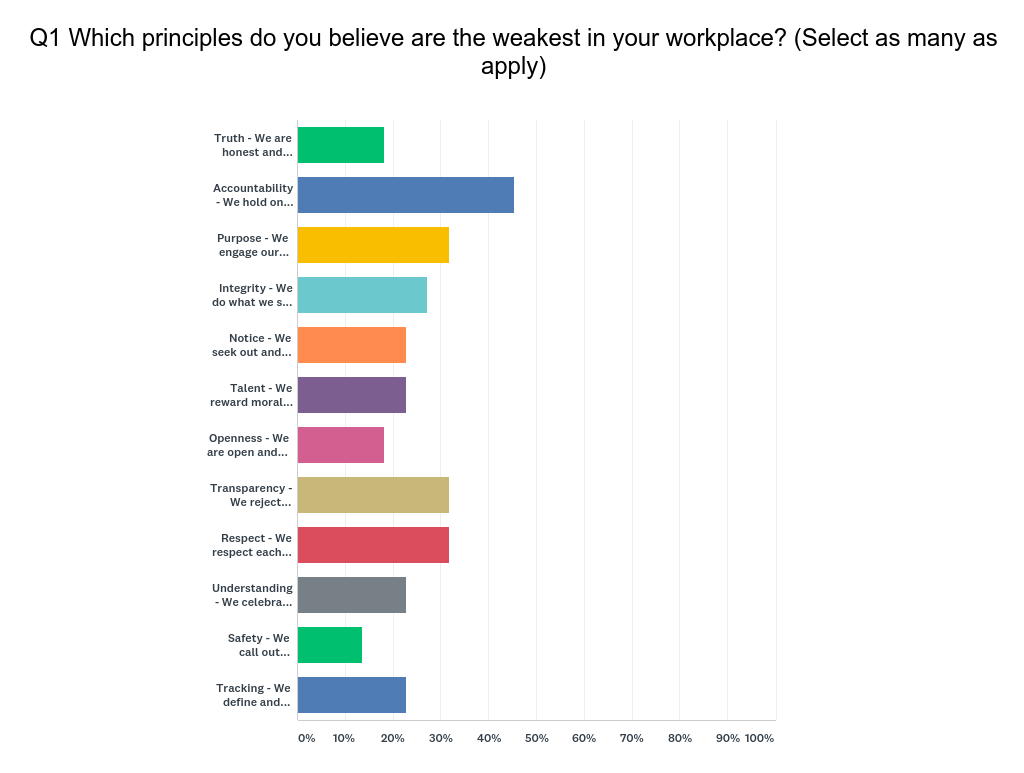
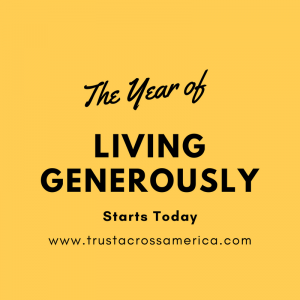



Recent Comments